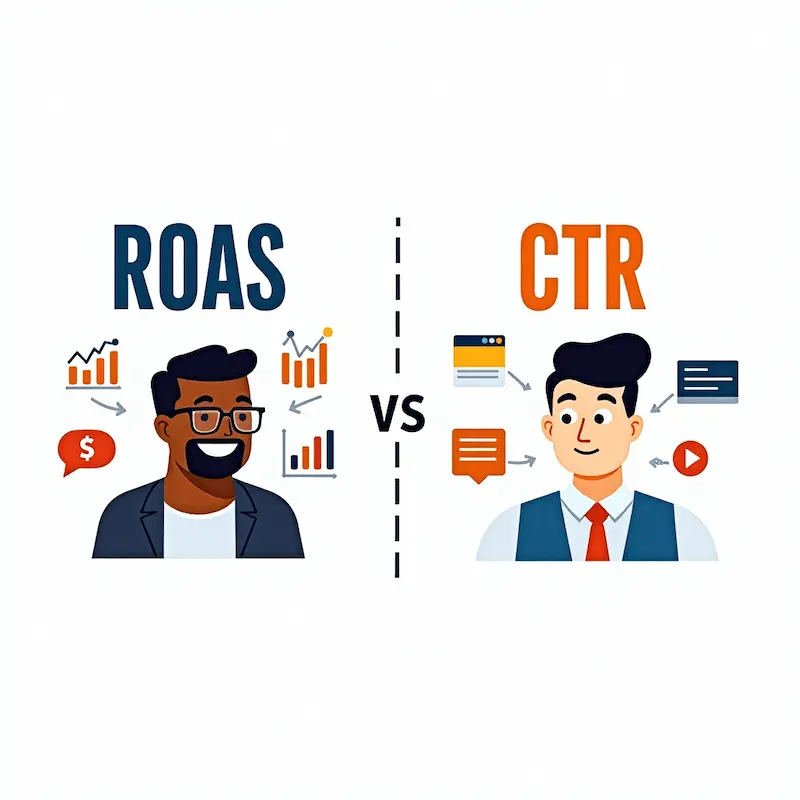ROAS vs. CTR: What’s the Difference & Why It Matters
Imagine you’re running an ad campaign. You’re getting tons of clicks, but sales? Not so much. Meanwhile, another campaign gets fewer clicks but makes way more money. What’s happening? That’s where ROAS (Return on Ad Spend) and CTR (Click-Through Rate) come into play.
These two marketing metrics tell very different stories, and understanding them can make or break your ad strategy. Let’s break it down.
What Is CTR (Click-Through Rate)?
CTR measures how often people click on your ad after seeing it. It’s calculated as:
CTR (%) = (Clicks / Impressions) × 100
Why CTR Matters:
- Indicates ad relevance – A high CTR means your ad is catching attention.
- Affects ad costs – Platforms like Google Ads reward high CTR with lower costs.
- Measures engagement – More clicks suggest your audience finds the ad interesting.
When CTR Can Be Misleading:
A high CTR doesn’t always mean success. If your ad gets a lot of clicks but doesn’t convert into sales, you’re just paying for curiosity, not customers.
What Is ROAS (Return on Ad Spend)?
ROAS measures how much revenue you earn for every dollar spent on advertising. It’s calculated as:
ROAS = Revenue from Ads / Ad Spend
Why ROAS Matters:
- Directly ties to profitability – It shows whether your ads are making money.
- Helps optimize budget – A low ROAS means you may need to tweak targeting or creatives.
- More reliable than CTR – It focuses on actual revenue, not just engagement.
When ROAS Can Be Misleading:
If your ROAS is too high, you might not be scaling enough. A balance between profit and growth is key.
ROAS vs. CTR: A Side-by-Side Comparison
| Metric | What It Measures | Formula | Best For |
|---|---|---|---|
| CTR | Engagement & relevance | (Clicks / Impressions) × 100 | Measuring ad attractiveness |
| ROAS | Revenue efficiency | Revenue / Ad Spend | Determining ad profitability |
Key Takeaway: CTR tells you if people like your ad; ROAS tells you if your ad makes money.
What is the difference between CPO and CPA?
Which Metric Should You Focus On?
If Your Goal Is Brand Awareness → CTR
- High CTR means your ads are getting noticed.
- Best for early-stage campaigns.
If Your Goal Is Profitability → ROAS
- ROAS ensures you’re making money from ads.
- Best for scaling businesses.
The Sweet Spot: A Balance Between Both
An effective ad campaign balances CTR and ROAS. You need engagement (CTR) to drive conversions, but ultimately, you want those clicks to turn into revenue (ROAS).
Final Thoughts
If you’re only looking at CTR, you might be paying for clicks that don’t convert. If you’re only focused on ROAS, you might miss opportunities to scale. The key is to track both metrics and adjust your strategy accordingly.
Got questions about optimizing your ads? Let’s discuss in the comments!


